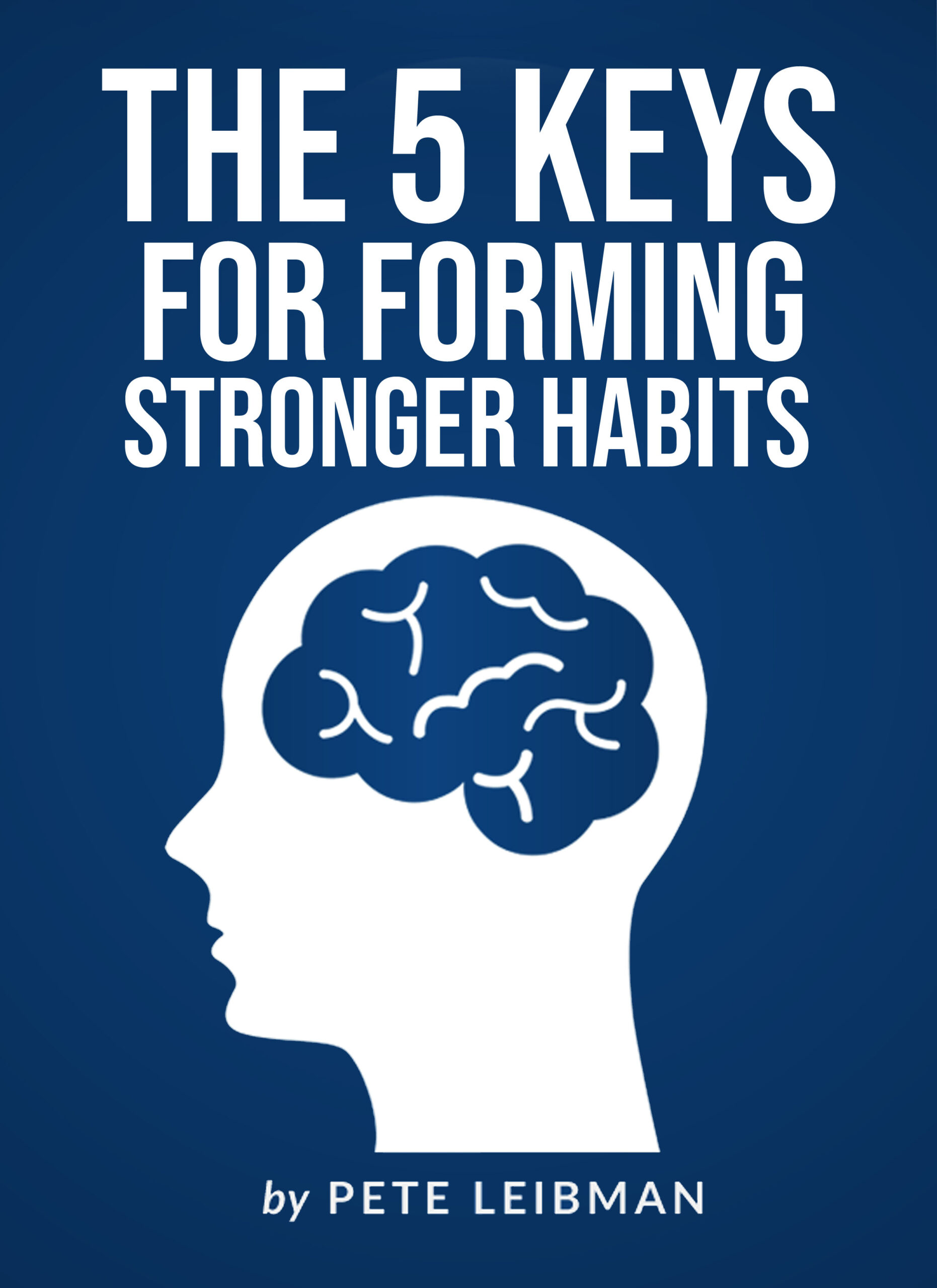
Have you ever wondered what is the best time of year to change your habits?
Many people probably think that the answer is January. The beginning of a new year is the perfect time for a fresh start, right?
In reality, it’s not quite that simple, and this article explains why.
A Quick Story
It was 5:55 a.m. on a frigid Tuesday morning in January. Five of inches of snow had fallen overnight in my town.
My friend Joe was my roommate at the time. We had agreed to get up early and drive to the gym together that morning. We each wanted to start exercising before work.
As we pulled into the outdoor parking lot for our gym, we were surprised to see Anthony, one of the gym’s personal trainers, standing outside in the snow with a group of other people. “What are they doing outside?” I asked Joe.
“No idea,” he replied.
We soon learned what had happened. It was so cold outside that the key to the gym had actually cracked in half when Anthony had tried to open the door at the main entrance! Everyone was locked out.
Joe and I drove home. Then, Joe went back to his bedroom and worked out there. I went back to my bedroom and slept for another hour. Sadly, it would be several years before I would try again (and succeed) at forming a morning exercise habit.
Different Time of Year, Different Outcome
In hindsight, there were many reasons why I failed in my first attempt to work out before work. First of all, I was staying up way too late at night. That made it difficult to get up early. Secondly, I had labeled myself as someone who was “not a morning person.” That gave me an excuse to snooze and sleep late each day.
The time of year was another big obstacle though. It is much more difficult to start a morning exercise habit in the middle of the winter- when it’s very cold where I live. In addition, the motivation to exercise is not as high as in warmer months- when you spend time in a bathing suit and other warm-weather attire.
Years later, I made another attempt to form a morning exercise habit. This time, the habit stuck, and it has lasted for years. There were a number of factors that contributed. Again, the time of year was one of them.
Unlike my first attempt, this attempt began at the end of the summer when the weather was much warmer. That made it easier to get up early and exercise. By the time that winter came around, morning exercise had already become a habit for me, and I stayed on track.
The Seasons of Weather Influence the Best Time of Year to Change Your Habits
Certain habits are easier to break, make, or stick to during warm-weather seasons. For example, it is typically easier to start or keep exercising (no matter what time you work out) during the summer than the winter. It is typically also easier to cut back on junk food during the summer than the winter.
Warmer weather makes it more fun to be active and get outside. There is also extra motivation to work out and eat healthy during warmer months, since more of your body is visible then due to warm-weather attire.
Other habits are actually easier to break, make, or stick to during cold-weather seasons. For example, it is much easier for me to stick to my writing habit during the winter than the summer. My desire to be outside is much lower then, so it is easier to stay inside and write for hours at a time.
Habits Are More Difficult to Change During Busy Seasons
The weather is not the only seasonal factor that changes throughout each year. Many people also have certain times of year at work that are much busier than others. In addition, many people also have certain times of year when they are much busier outside of work. That could be related to family commitments, religious commitments, volunteer activities, hobbies, or something else.
It is typically more difficult to change your habits during some kind of “busy season.” If you are already stretched thin, it can seem daunting to add to do your to-do list and invest time and energy into behavior changes.
Forming Stronger Habits Throughout the Year
While you can obviously try to change your habits whenever you want, there are certain times of year when any type of change will be easier. Here are three tips on how to form stronger habits throughout the year:
(1) Always consider the best time of year for a specific change.
Unfortunately, many people try to make a big change at a time of year when they are least likely to succeed. For example, it is much more difficult to start or stick to a new exercise program or nutrition program in January (when many people try to get started) than in the spring or summer.
Note: The point here is not that you should use the time of year as a reason to procrastinate on making an important change. The point is to start smaller and easier if the timing is not ideal.
(2) Save your biggest changes for your slowest times of year.
Most people have certain times each year that are much slower than others. Use those times of year to strive for your biggest changes. You will have more time and energy to stay on track.
Note: As written here, another great time to make a big change is when your life changes for you.
(3) Be very intentional during cold-weather months and busy seasons.
It is especially easy to fall into bad habits during cold-weather months and busy seasons. These times of year often lead to more sadness and more stress, which are two of the biggest triggers of bad habits. As a result, it’s even more important to start and end each day strong during these potentially difficult times of year. Your behavior at the beginning and end of each day is especially likely to set off a chain reaction (good or bad) of other habits.
Summary and Final Thoughts
So, when is the best time of year to change your habits? Well, it depends on what habit you want to change and what your schedule looks like throughout the year.
There are certain times of year when it will be easier for you to form certain habits. There are also certain times of year when it will be easier for you to fall into bad habits. This article shared three tips on how to form stronger habits throughout the year:
- Always consider the best time of year for a specific change.
- Save your biggest changes for your slowest times of year.
- Be very intentional during cold-weather months and busy seasons.
When you factor in timing, you will be more likely to form stronger habits throughout each year.
P.S. If you enjoyed this article, check out my free 40-page eBook and newsletter below.

Free eBook and Newsletter
Download my free 40-page eBook on “The 5 Keys for Forming Stronger Habits.”
You’ll also receive my free weekly newsletter on how to become your strongest self.
Your email is safe. Unsubscribe anytime.
About the author: Pete Leibman is the Creator of StrongerHabits.com. He is a best-selling author, keynote speaker, executive recruiter, athlete, and peak performance coach. His work has been featured on Fox News, CBS Radio, and CNNMoney.com, and over 500,000 people across the world have read his articles.
References for this article
- “ACSM Issues New Recommendations on Quantity and Quality of Exercise,” ACSM, http://www.acsm.org/about-acsm/media-room/news-releases/2011/08/01/acsm-issues-new-recommendations-on-quantity-and-quality-of-exercise.
- John J. Ratey, with Eric Hagerman, Spark: The Revolutionary New Science of Exercise and the Brain (New York: Little, Brown & Company, 2008).
- Ibid
- Ibid
- Ibid
- Ibid

